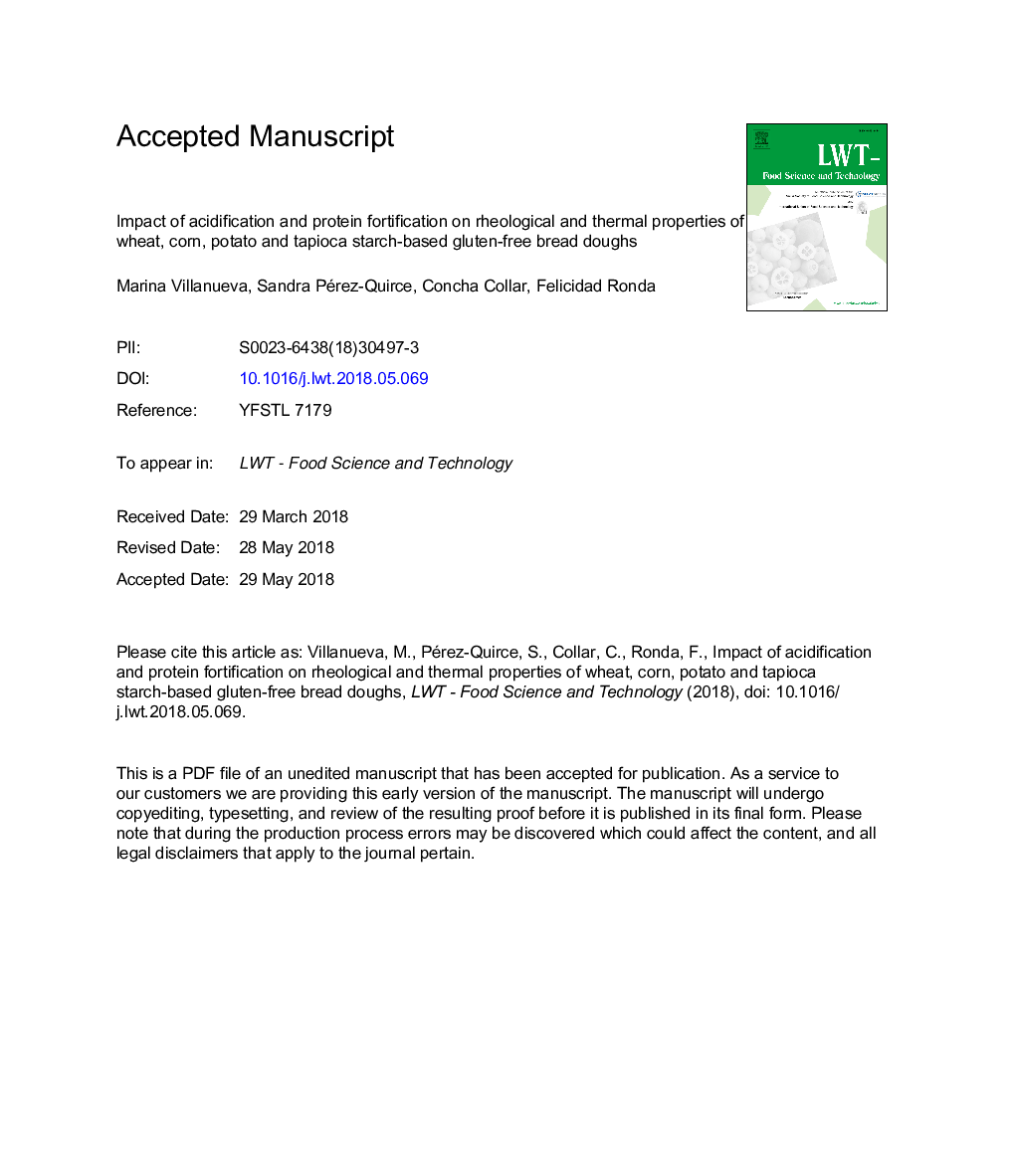| Article ID | Journal | Published Year | Pages | File Type |
|---|---|---|---|---|
| 8890584 | LWT - Food Science and Technology | 2018 | 28 Pages |
Abstract
The study of new gluten-free (GF) foods is necessary since consumers intolerant to gluten are more and more frequently diagnosed. The study evaluated the impact of acidification -with acetic + lactic blend at 0.5 g/100 g level- and protein fortification -with caseinate (CA) or soy-protein isolate (SPI)- on the rheological features of wheat, corn, potato and tapioca starch-based bread doughs. Oscillatory and creep-recovery tests were carried out to characterise their viscoelastic behaviour, and thermomechanical tests were performed to assess their visco-metric performance. Dough stickiness was also measured. The acid blend had a modulator effect on dough rheological properties that depended on both the type of protein and the source of the starch. Proteins structured and strengthened the doughs especially those made with SPI-potato starch and CA-wheat starch mixtures. Acidification decreased GⲠand GⳠmoduli until 70% with respect to unacidified doughs. The effect was much more marked in protein-fortified doughs. A significant increase in all pasting viscosities was observed with protein addition, particularly in the case of CA. In general, protein addition decreased dough stickiness whereas the opposite effect was noted with the presence of acid. Acidification of protein-enriched starch matrices modulate dough rheological properties which are of relevance in GF products development.
Related Topics
Life Sciences
Agricultural and Biological Sciences
Food Science
Authors
Marina Villanueva, Sandra Pérez-Quirce, Concha Collar, Felicidad Ronda,
